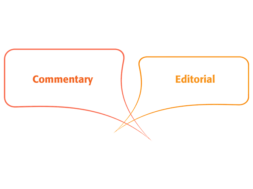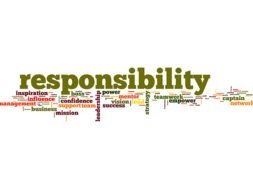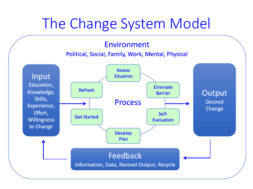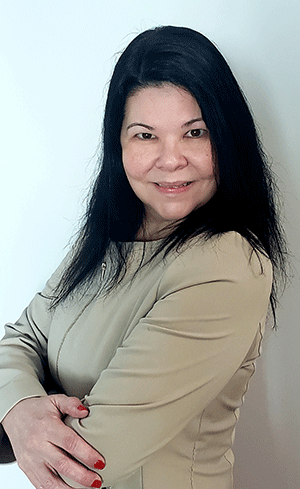
FNU Students Display Emotional and Psychological Resilience in Spite of COVID-19
By Mireidy Fernandez, PsyD, Adjunct Faculty, Florida National University
A loud knock at the door. An abrasive nudge. A cell phone ring. Those can all surely wake us up from a nightmare as we sigh in relief perhaps mumbling to ourselves: “Oh, it was just a bad dream.”
For our nation and the rest of the world, however, the past seven months may feel like an ongoing nightmare that we cannot awake from, escape, or deny. Since March 11, 2020, when the World Health Organization officially declared COVID-19 a pandemic1, our life – as we knew it – drastically changed. As the United States shared its plans to combat the virus and ways we must all protect ourselves – public reaction has been congruent: whether the feeling is part sci-fi movie or part denial, as humans we have been forced to tap into our coping mechanisms as we apprehensively tread the unknown.
As an adjunct professor at Florida National University (FNU), I knew teaching my undergraduate students remotely and adjusting to the so-called “new normal” would be extremely challenging, if not draining.
The adjustment would be especially difficult for most of our student population, many of whom possess enormous drive and motivation yet also have critical responsibilities balancing workplace, school, and home life demands. Moreover, for many of our students English is not their native tongue so they have to work extra hard as they progress through their academic journey toward achieving their degrees.
As grim news of the pandemic’s reach and devastation became front and center and a part of our daily existence, so did the responsibility for me as an instructor. As an educator and professional, we have the tools to show patience and compassion toward our students, yet it also comes with the responsibility of holding them accountable. As such, I ventured on (as did the rest of my colleagues at FNU) to teach remotely. I expected the summer term to be a daunting endeavor for all – but more so for our students. As with any change, it can sometimes be difficult and unwelcomed. So, we ventured off to teach remotely and for some students – especially those who are chatty and prefer that face-to-face contract – it was a complicated adjustment.
To have to realign and reconfigure our mindset to a “new normal” would be very chaotic, especially for my students. My mental picture of what was ahead for the summer term was dire. I believed it would mean my students would worry, not participate in class, be late (or even worse absent) to the remote courses, not complete their assignments, and be too stressed to focus on their studies. With this, it meant the students would not be able to handle the assignments or even finish their work by the due dates. It would all be too much for them; the constant worrying about COVID-19 and dealing with its repercussions – the quarantine, the forced social-distancing, the mask-wearing – would all be too much to manage. As such, the students would likely not complete the term and probably drop out of the courses altogether. I thought: Surely, there must be something I can do as an instructor to avoid these psychological pitfalls; I care about my students and I take pride in fostering an academic environment that promotes sensibility and strength as we delve into the various facets of psychology.
I was prepared to deal with depressed students, who lacked the motivation to learn or focus in school. The psychological toll of the pandemic and its demands would undoubtedly have a negative effect on my students – after all, we are only human. During one of my first lessons, I spoke to them about staying strong and getting through the situation together while distanced. I sometimes would incorporate positive images from talks by the late counselor and motivational speaker Dr. Wayne Dyer2 (one of my favorites) and even self-help guru Tony Robbins3. Other times I would share illustrations of the classic fork-in-road scenario: Which road should one take and where does it lead? How do we make sure we stay in the straight and narrow road and avoid veering off? On some days, I would give pep talks at the start of class, focusing on the things that are going right in our lives and for the things we should be grateful for. Although these creative ways to keep my students motivated were well-received – I soon realized the obvious.
All my worry and angst could be swiftly set aside. My students proved me wrong.
They showed me their emotional strength and discipline for their studies week after week during the summer term when we first launched fully remote learning courses (aside from the online courses).
Far from being unfocused and non-committal, my students demonstrated their desire to learn and achieve each week by not only faithfully attending each remote course but also engaging in classroom discussions, displaying a positive attitude, and submitting solid assignments by their due dates. They proved how resilient they are – even in the face of a pandemic that has turned our lives upside down.
According to Merriam-Webster4, to be resilient is to “recover from or adjust to misfortune or change.” Although I was there serving as their instructor – my students taught me about their inner strength – an intrinsic quality that cannot be taught, acquired, or transferred. Undoubtedly, my students’ commitment to their studies and their future was part of a firm emotional and psychological foundation that is not easily frazzled. Their desire to succeed – and obtain their professional degrees – is so entrenched in their sub-conscious that not even COVID-19 could deter them from fulfilling their dreams. I was not just awe-struck by my students’ positive outlook – I felt truly inspired and fortunate. I felt privileged to work for an institution such as FNU that fosters such tenacity in our students as well. From a psychological and emotional intelligence purview, my job as an educator is richer today than it was prior to COVID-19.
As individuals, we are perpetually in transition. We are continually learning, changing, and adapting. My students did not just show their psychological fortitude, they also exhibited extremely high levels of emotional intelligence-EI (the ability to identify one’s emotions as well as harness those emotions and apply them to tasks like thinking and problem-solving5). Another way of defining EI is the juncture at which cognition and emotion meet – because displaying EI facilitates our capacity for resilience, motivation, empathy, reasoning, and stress management.6
To understand why my students may have adapted so well during this pandemic, we must first profile the composition of the FNU student population. Most of my students are immigrants from such countries as Cuba, Colombia, Venezuela, and Argentina, just to name a few. English is not their first language, and many arrived in the United States as adults. Therefore, learning a new language coupled with going to college have both been substantial challenges they have had to overcome.
In psychology, moving from one place to another – or residential migration – is considered one of the most serious stressors on mental health.7 Because moving, as in the act of relocating, is considered a major life event and so many of my immigrant students have had to assimilate and acclimate to a new land, they have surely stared at and already overcome so much adversity in their lives. That to me adds to the definition of resilience: knowing that you are venturing into unknown territory and still pressing forward, despite the clear obstacles, fears and risks that may arise in the process. It is also remarkably inspiring.
In the midst of one of the most unprecedented periods of our lives, the lesson learned for me as the instructor was that even a pandemic cannot break our students’ strong spirits.
The resilience of our humanity, and especially of our students at FNU, is insurmountable. I had shared with Dr. Jose Perez, our Psychology Division Head, that I truly was prepared to offer a great deal of counseling to our students during this difficult time. Then, over the course of the summer term and now into the fall term I realized what had occurred: the students taught me so much about their inner strength and their desire to not allow anything, even COVID-19, to become an obstacle as they pursue their educational goals and dreams.
Just like a nightmare that we yearn to be awoken from, the pandemic’s psychological effects for our society may linger even after a vaccine is distributed to the masses. Although the core of our beings remain, this experience will surely change us in some way. For our world, 2020 has been a challenging year thus far – one that on many levels feels surreal. My hope is that just as my students have tapped into that inner strength to continue along their educational path and focus on their studies, we can all learn from this level of internal fortitude and continue onward.
- World Health Organization, April 27, 2020, https://www.who.int/news-room/detail/27-04-2020-who-timeline—covid-19
- Dr. Wayne W. Dyer, https://www.drwaynedyer.com/
- Tony Robbins, https://www.tonyrobbins.com/
- Merriam-Webster, https://www.merriam-webster.com/dictionary/resilient
- Psychology Today, What is Emotional Intelligence? https://www.psychologytoday.com/us/basics/emotional-intelligence
- PositivePsychology.com, The Importance of Emotional Intelligence, https://positivepsychology.com/importance-of-emotional-intelligence/
- Science Direct, How Do Moving and Other Major Life Events Impact Mental Health, July 2017, Vol. 46, Pg. 257-266, https://www.sciencedirect.com/science/article/pii/S1353829217300503
DR. MIREIDY FERNANDEZ, PsyD, is an adjunct professor at Florida National University, where she teaches general and core courses in psychology. Dr. Fernandez possesses 24 years of experience in the areas of college teaching, public policy and legislative auditing, urban and transportation planning, and communications. She holds a Doctorate in Psychology from Ashford University-The Rockies, a Master’s in Public Administration from Hodges University and a Bachelor’s in Communications from Florida International University. Dr. Fernandez’s teaching philosophy is based on Carl Rogers’ Humanistic and Person-Centered Theory, thereby creating a learning environment that is student-centric.
Contact Information: Dr. Mireidy Fernandez, PsyD // Adjunct Psychology Faculty // Florida National University // mireidyf@fnu.edu // www.fnu.edu








